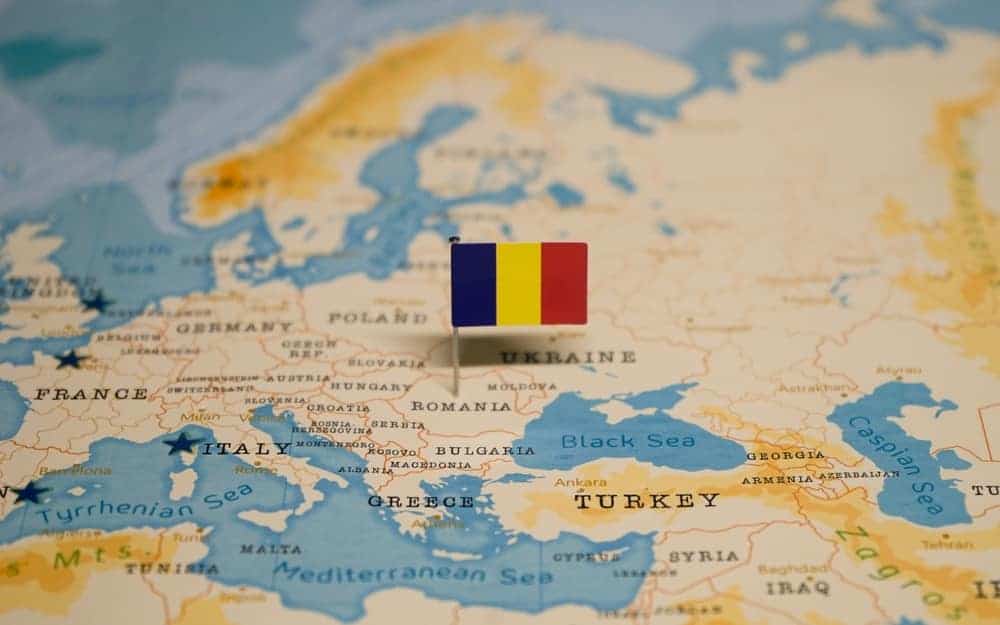
The Permanent Electoral Authority in Romania (ROAP—Romania Autoritatea Electorală Permanentă) is using blockchain technology to count and validate presidential electoral votes on November 24.
Ovidiu Damian, a Romanian blockchain developer at Pi Squared, reported the news on X earlier this morning. “Romania casually using blockchain tech to ensure election integrity,” said Damian, sharing a link and joking it is “probably nothing.”
With that, people from all over the world can follow the transactions in a public ledger, live in a dashboard at ROAP’s official website. As of this writing, 83859 blocks containing cryptographically verified votes have already been added to the blockchain.
Romania’s Special Telecommunication Service (STS—Serviciul de Telecomunicații Speciale, in Romanian) also signs the website together with the electoral authority. According to an STS announcement, the system uses the European Blockchain Services Infrastructure (EBSI), composed of nodes located in 27 European countries.
“This modern technological implementation aims to strengthen the resilience of the Romanian electoral system, by ensuring traceability and increasing trust in data integrity. Moreover, for the first time, the digital fingerprints of this data will also be anchored in the European Blockchain Services Infrastructure (EBSI) blockchain network developed by the European Commission, thus ensuring an additional level of security and traceability.”
Blockchain development in Romania
Notably, the European country sitting at the crossroads of Central, Eastern, and Southeast Europe has achieved significant milestones regarding blockchain.
In 2023, the European governmental institution ICI Decentralized Services (ICI D | Services) launched an NFT trading platform, bringing groundbreaking innovation. The project was built in partnership with the MultiversX Foundation, running on top of the MultiversX (EGLD) blockchain.
Moreover, in 2024, the national news agency of Romania (Agerpres—Agenția Națională de Presă, in Romanian) published the first official news in the NFT format, which was forever registered within the MultiversX blockchain.
A blockchain enthusiast, Andu Tabacu, commented on the recent developments related to Romania’s Prezidentiale 2024.
“Blockchain is becoming such an amazing truth-machine with great use cases and no matter if you participated in the “casino” phase of the blockchain or not, you need to wake up. This is the best tech for true ownership and validation that exists today.”
– Dr. X (@AnduTabacu)
Romania-based L1 blockchain: MultiversX (EGLD)
Interestingly, MultiversX creators Beniamin Mincu, Lucian Mincu, and Lucian Todea are Romanians, expanding the country’s blockchain-related awareness to the world.
Overall, MultiversX is a promising Ethereum rival, similar to XRP and ADA, with a growth potential recognized by different experts. On Finbold, we have covered analysts’ insights on EGLD, highlighting its fundamentals, economics, and potential price action.
For example, Justin Bons, founder and CIO of Europe’s oldest cryptocurrency fund, deemed MultiversX’s sharding the “technological Holy Grail of crypto.” Andrei Sobolev sees a “30x” opportunity in EGLD’s technical indicators as liquidity flows to altcoins. Meanwhile, Lucky (LLuciano_BTC), a one-million followers analyst, agrees with Sobolev’s “bullish outlook” and praises EGLD’s development ecosystem.
“Incredible team, supportive community EGLD has really been building constantly!”
Lucky (LLuciano_BTC)
As Finbold reported, Alibaba Cloud recently announced a partnership with MultiversX as the team started entering the Asian market. Startups have also leveraged the L1 blockchain’s infrastructure to build their businesses and innovative solutions.
In conclusion, this recent innovation could set a completely new standard for government elections worldwide, positively using blockchain technology for more transparency and data immutability, increasing the potential for projects that are developing solid and scalable solutions.
